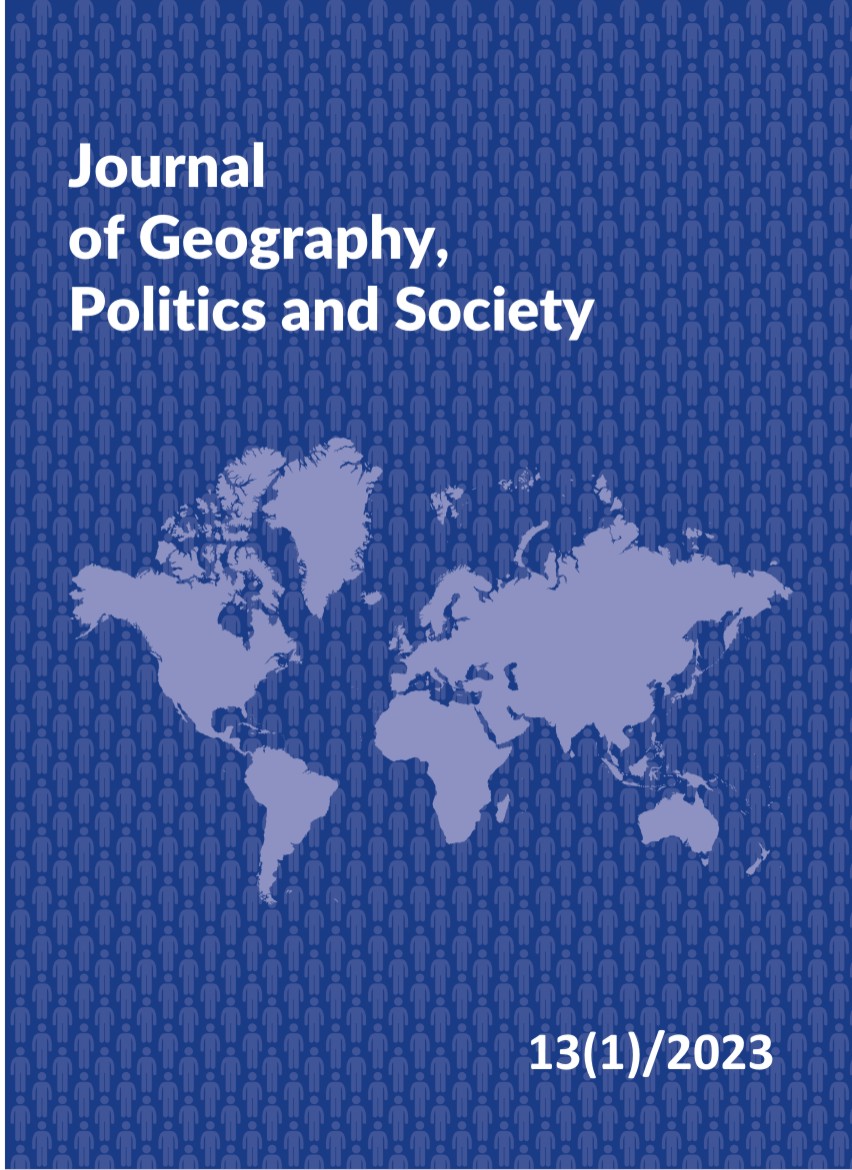The Status of Women in the Soviet Union
DOI:
https://doi.org/10.26881/jpgs.2023.1.01Keywords:
women in the Soviet Union, Bolshevik revolution, communism, gender policyAbstract
For centuries, many women have been at the forefront of the struggle for emancipation and political changes. Efforts at integrating the idea of emancipation into society was an important part of the Bolshevik ideology; thus, the October Revolution of 1917 brought women new hope and new expectations. The Soviet Union was the first country in the world to successfully open the door to new economic and educational opportunities for women. In 1917, the Bolshevik legislative initiatives provided them with full political and civil rights while new legislation made women legally equal to men. The constitution adopted in July 1918 secured the political and civil equality of women and men. However, the gender policy developed and implemented by Lenin significantly changed after his death. Until the second half of the 1930s, the Soviet Union remained the world leader in terms of providing women with equal rights. However, after the new leader of the Soviet Union, Stalin, came to power, the government policy on women and equality substantially transformed. During Stalin’s rule, the concept of “a new type of woman” was created. The early Bolshevik policy, which started with a radical liberal vision of individual freedom and women’s rights, devolved into an abyss of cynicism that burdened women with a disproportionate responsibility for unpaid work in the household.
The purpose of this work is to study the role of women during the early Soviet period and to examine legal and political changes in women’s status. The study aims at explaining what the main goal of the Soviet gender policy was in fact, whether it actually changed the status of women and what crucial changes it ultimately brought to them. Using the method of content analysis, the content of official documents, press and scientific literature was analyzed. At the same time, attempts were made to identify and analyze the positive and negative results of the Soviet policy by applying the method of critical research.
Downloads
References
Constitution of the Russian Soviet Federated Socialist Republic, 2018, https://www.marxists.org/history/ussr/ government/constitution/1918/index.htm (accessed 10 February 2022).
Constitution of the U.S.S.R., 1996, http://large.stanford. edu/history/kaist/references/marx/beard/c2/ (accessed 17 July 2022).
Buckley M., 1981, Women in the Soviet Union, Feminist Review, 8, 79–106.
Daniels R., 1960, The Conscience of the Revolution: Communist Opposition in Soviet Russia, Harvard University Press, Cambridge.
Dodge N., 1966, Women in the Soviet Economy: Their Role in Economic, Scientific, and Technical Development, Johns Hopkins Press, Baltimore.
Engels F. 1884, The Origin of the Family, Private Property and the State, Marx/Engels Selected Works, Vol. 3, https://www.marxists.org/archive/marx/works/1884/originfamily/index.htm (accessed 10 September 2021).
Family law of the RSFSR, n.d., https://soviethistory.msu. edu/1917-2/the-new-woman/the-new-woman-texts/code-of-laws-concerning-the-civil-registration-ofdeaths-births-and-marriages/ (accessed 10 January 2022).
Goldman W., 2002, Women at the Gates: Gender and Industry in Stalin’s Russia, Cambridge University Press, Cambridge.
Goldman W.Z., 1993, Women the State and Revolution: Soviet Family Policy and Social Life, I917–1936, Cambridge University Press, Cambridge.
Harrison M., 2008, Stalinism and the Economics of Wartime, University of Warwick, Warwick.
Hutton M., 2015, Resilient Russian Women in the 1920s & 1930s, Zea Books, Lincoln.
Karl Marx, Joseph Stalin, Vladimir Il’ich Lenin, Fredrich Engels, Women and Communism: Selections from the writings of Marx, Engels, Lenin, and Stalin, 1950, Greenwood Press, Westport, Conn [reprinted 1975].o
Kollontai A., 1920, Communism and the familiy, Selected Writings of Alexandra Kollontai, Allison & Busby, https://www.marxists.org/archive/kollonta/1920/communismfamily.htm (accessed 15 May 2022).
Lenin V.I., 1973, International working women’s day [in:] V.I. Lenin, Lenin collected works, 32, Progress Publishers, Moscov, 161–163, http://www.marx2mao.com/PDFs/Lenin%20CW-Vol.%2032.pdf (accessed 05 September 2021).
Lenin V.I., 1977, On The Emancipation of Women, Progress Publishers, Moscow.
Lenin V.I., 1918, Speech at the first All-Russia Congress of Working Women, Pravda No 253, 180–182, https://www.marxists.org/archive/lenin/works/1918/nov/19.htm (accessed May 2021).
Lenin V.I., 1919, The Tasks of The Working Women’s Movement in The Soviet Republic, Lenin, Collected Works, Vol. 30, p. 47.
Liu C.M., 2019, Stalin’s “New Soviet Woman”, Sociology Mind, 9, 247–257. doi: 10.4236/sm.2019.94016
Mespoulet M., 2006, Women in Soviet society: Cahiers du CEFRES N 30, Le communisme à partir des sociétés – Communism from the viewpoint of societies, Cahiers du CEFRES, Centre Français de Recherche en Sciences Sociales (CEFRES), 2006, Communism from the viewpoint of societies, pp.7. ffhalshs-01160379f.
Racioppi L., O’Sullivan K., 1995, Organizing Women before and after the Fall: Women’s Politics in the Soviet Union and Post-Soviet Russia, Signs, 20(4), 818–850. doi:10.1086/495023.
Schuster A., 1971, Women’s Role in the Soviet Union: Ideology and Reality, The Russian Review, 30(3), 260–267. Stalin J.V., 1954, International Women’s day, March 8, 1925 [in:] J.V. Stalin, Works, vol. 7, Foreign Languages Publishing House, Moscow, 1954, https://www.marxists.org/reference/archive/stalin/works/1925/03/08.htm (accessed 30 September 2021).
Stites R., 1976, Zhenotdel: Bolshevism and Russian Women, 1917–1930, Russian History, 3, 174–193. The USSR Mother Heroine Medal, n.d., Military Medals, Badges & Awards, https://www.identifymedals.com/database/medals-by-country/russia-ussr-medals/the-ussr-motherheroine/ (accessed 10 May 2021).
Usha K.B., 2005,. Political Empowerment of Women in Soviet Union and Russia: Ideology and Implementation, International Studies, 42(2), 141–165. doi:10.1177/0020881704042002.
Wolfe B., 2001, Three who made a revolution, a biographical History of Lenini, Trotsky, and Stalin Bertram, Cooper Square Press, Lanham.

 Academic Scientific Journals
Academic Scientific Journals




